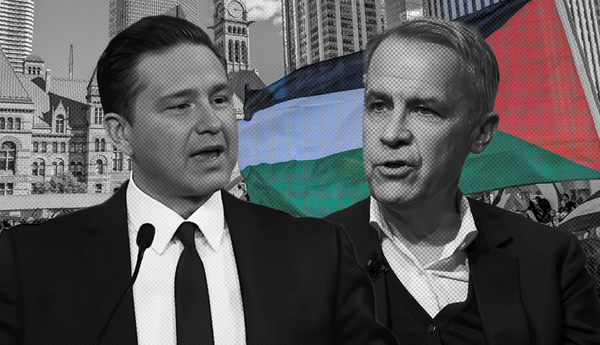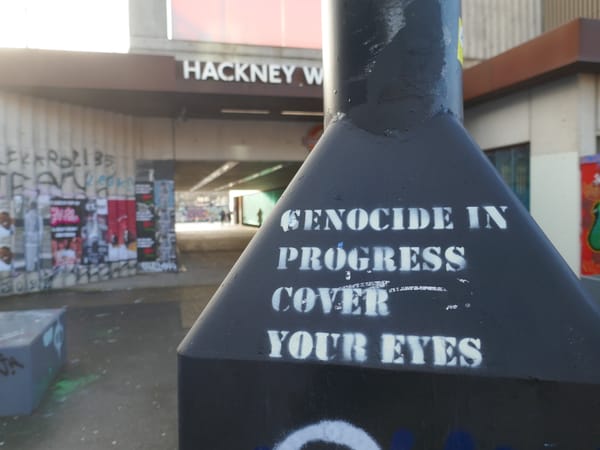On Wednesday, the Manitoba RCMP announced that one of the people who had been critically injured in the June 15 collision between a bus and a truck in Carberry, Man., died, bringing the death toll to 16.
The crash has eerie similarities to the April 2018 Humboldt Broncos bus crash: in that accident, the 16th fatality, the only woman to die in the accident, died five days later. The RCMP noted this right after the collision in Carberry, with Manitoba RCMP Supt. Rob Lasson telling reporters: “This incident does have echoes of the tragic collision that happened in Humboldt, Sask. And we are very much aware of that.” Lasson added that some of those involved in the Humboldt crash were being relied upon for assistance.
But the similarities — the grieving families, the same number of fatalities, a road accident between a truck and a bus, the survivors in hospital — pretty much end there.
There were no hockey sticks left at the doors of Canadians across the country for the seniors from Dauphin who were headed for a day trip to a casino near Carberry. There will be no fundraisers organized by Air Canada, or spontaneous donations totalling more than $15 million.
A Google search for “GoFundMe AND Carberry” or “GoFundMe AND Dauphin” brings up pages for people named Carberry or Dauphin seeking help as they go into surgery or stare down a battle with cancer. There’s an article from the Winnipeg Free Press noting that GoFundMe was on the lookout for potentially fraudulent fundraisers trying to profit off the crash, as sometimes happens right after a tragedy. That’s it.
Rather than externalizing this tragedy as a Canadian one, journalists have framed the Carberry crash as a local tragedy: devastating for Dauphin, but not exactly devastating for Canada. Making people who have no personal connection to any tragedy care about it requires certain elements, not the least of which are names, the stories of how much they were loved and what about them will endure. And in this case, there has been very little of that for nearly a week.
After the Carberry crash happened, I received a swell of messages from people wondering if I’d say something insensitive about this accident, as they claimed I’d done after the Humboldt crash. I received a few messages calling me names, but mostly ones from people who have reinvented the meaning of my words that continue to follow me around today, five years later.
What I said in a short, four-tweet Twitter thread following the Humboldt crash was true then and it remains true today. In Canada, if you are white, young, male and especially a junior hockey player, you will be mourned more intentionally, nationally, and financially than anyone else. That is a fact, borne out by a hundred other tragedies over the course of our existence as a country. And saying this fact does not, in any way, suggest that anyone is mourned too much.
Rather: we don’t mourn others enough. And in not mourning others enough, we consider certain lives disposable. When we’re reminded that something is sad, we internalize the message about what makes something sad. This is how our culture decides who is worth mourning and who is not. It’s far harder to forget about a tragedy when your supermarket is raising money for the victims or your local news station has made fundraising a priority.
Since the crash in Carberry, there has been another bus accident in Canada. Maybe you heard about it? Maybe not.
A bus that was driving workers from Prince George, B.C., to their worksite near the Coastal GasLink pipeline flipped on a small forestry road, sending 18 of its 24 passengers to hospital.
Maybe it barely made the news because no one died. Or, maybe it was the circumstances surrounding the accident. The passengers were all housekeepers, mostly immigrant women from Somalia and Ethiopia. Their employer, a company called Horizon North, had evicted them from company lodging to make room for more Coastal GasLink workers. The bus was their new link to work, requiring a trip of up to four hours each day on sketchy roads.
There was no explanation of why these women were the ones that Horizon North chose to evict, rather than sending the new pipeline builders, whose salaries likely eclipse the ones made by the housekeepers, to live in Prince George. Even though the union, Unite Here Local 40 had challenged the decision to move these workers, Horizon North kicked the grievance to arbitration. That means they were resisting the grievance, which would have placed the workers back in their lodgings.
Horizon North is owned by a company called Dexterra. Dexterra is owned by Fairfax Financial Holdings Inc. Canada’s former special rapporteur into foreign interference David Johnston sits on the board of both Dexterra and Fairfax.
Any road accident, especially one in which there are multiple casualties, should force policymakers to deal with issues related to road safety: the physical layout of intersections, the lack of seatbelt wearing on coach buses, driver training and alertness, and so on. There’s no shortage of ways to make our roads safer. But the reality is that it’s just not a priority for any politician.
And so, when tragedy strikes, a politician has two possible strategies. Either the deaths will be ignored or they’ll become such a big issue that talking about anything other than the deaths in and of themselves mutates into being disrespectful to the victims and their families. If they are ignored, the politician is safe: he can do nothing. If they become an issue of national importance and concern, he can offer prayers and platitudes until the fundraising reaches $15 million, and then people move on.
In the aftermath of tragedy, people naturally want to talk about ways to stop something similar from ever happening again. Because of that, it takes a lot of work to police the narrative — to either exalt or ignore certain people — in service of making sure that nothing changes. Indeed, it’s much easier to shoot the messenger than it is to fix structural or systemic problems.
Here are the names and ages of the deceased:
- Claudia Zurba, 87;
- Patsy Zamrykut, 88;
- Lillian Stobbe, 73;
- Donna Showdra, 79;
- Jean Rosenkranz, 82;
- Rose Perzylo, 80;
- Frank Perzylo, 82;
- Shirley Novalkowski, 76;
- Nettie Nakonechny, 87;
- Dianne Medwid, 70;
- Arlene Lindquist, 68;
- Helen Kufley, 88;
- Ann Hill, 81;
- Vangie Gilchrist, 83;
- Margaret Furkalo, 82;
- Louis Bretecher, 81.







